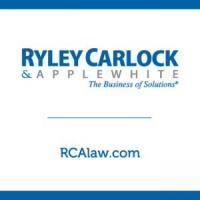The SEC Division of Corporation Finance (the “Division”) recently issued guidance to highlight some of the COVID-19 pandemic-related considerations companies need to bear in mind as they prepare their corporate disclosures. The guidance included three main topics: (1) disclosing the ways COVID-19 may affect the company, both now and in the future; (2) refraining from trading on material, non-public information about the company until that information is publicly disclosed; and (3) reporting company financial information when GAAP financial measures are unavailable. The guidance emphasizes that health and safety are the first priority and should not be compromised to meet reporting requirements.
Takeaways from each topic are outlined below. The full guidance is available here on the SEC website.
Assessing and Disclosing the Evolving Impact of COVID-19
Companies should disclose the effects and risks of COVID-19 as part of their upcoming disclosures. Disclosure of COVID-19-related effects and risks could be included in management’s discussion and analysis, the business section, risk factors, legal proceedings, disclosure controls and procedures, internal control over financial reporting, and the financial statements.
The guidance includes questions designed to encourage companies to consider all the possible ways COVID-19 affects their current and future operations. Generally, companies are asked to assess and disclose the effects COVID-19 has had on a company, what management expects its future impact will be, how it is responding to evolving events, and how it is planning for COVID-19-related uncertainties. A company should disclose if COVID-19 is expected to impact future operations differently than how it affected the current period.
Before assembling COVID-19-related disclosures, management should read through and analyze the full set of questions included in the guidance. Companies are encouraged to provide disclosures that allow investors to evaluate the current and expected impact of COVID-19 through the eyes of management. Additionally, companies should proactively revise and update disclosures as facts and circumstances change.
Need to Refrain from Trading Prior to Dissemination of Material Non-Public Information
Where COVID-19 has affected a company in a way that would be material to investors or where a company has become aware of a risk related to COVID-19 that would be material to investors, the company, its directors and officers, and other corporate insiders who are aware of these matters should refrain from trading in the company’s securities until such information is disclosed to the public. Further, companies need to consider whether they may need to revisit, refresh, or update previous disclosures to the extent that the information has become materially inaccurate.
Reporting Earnings and Financial Results
The Division recognizes that the impact of COVID-19 may present a number of novel or complex accounting issues that may take time to resolve. These complexities may make it necessary to present a non-GAAP financial measure in company reporting. Companies should not use non-GAAP financial measures or metrics to present a more favorable view of the company. Disclosures should only include those non-GAAP financial measures a company is using to report financial results to the Board of Directors.
Companies should reconcile any non-GAAP financial measures to preliminary GAAP results that either include provisional figures based on a reasonable estimate, or a reasonable range of GAAP results. A non-GAAP financial measure should not be disclosed more prominently than the most directly comparable GAAP financial measure or range of GAAP measures. Companies should additionally disclose why the line item or accounting is incomplete, and what additional information or analysis may be needed to complete the accounting. In filings where GAAP financial statements are required, such as filings on Form 10-K or 10-Q, companies should reconcile to GAAP results and not include provisional amounts or a range of estimated results.





 />i
/>i
